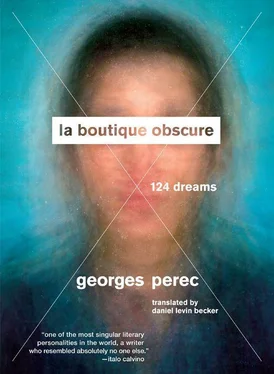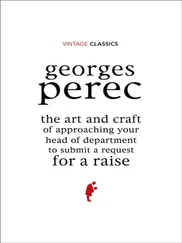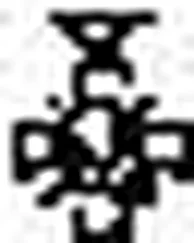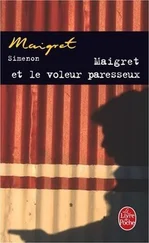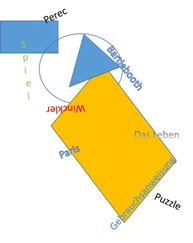The denunciation
1941.
The fabric merchant owed my father money and decided to denounce him to the SS and, at the same time as my father, his own son (or just an employee) who was found distributing clandestine newspapers.
It’s much more complicated than that. But that’s what it is.
The SS comes to arrest us. They have black uniforms and tight-fitting, spherical helmets, like masks. They’re preparing to arrest the boss too, but he lifts my head by the chin and points to the little scar underneath it.
We cross the town.
If only we could go have a cup of coffee. It seems so simple, but it’s impossible. I’ve already given up. The casino is closed too, or closed to Jews. But a light shines from inside.
We go back the way we came. We pass the fabric merchant’s store again. It’s a boutique on the corner of two streets; neo-Gothic architecture (turrets, machicolations). It looks fancy. We look at it with a well-justified bitterness.
We arrive at the train station.
Disorder.
I know what’s waiting for us. I have no hope. Get it over with. Or maybe a miracle … One day, learn to survive?
My father dips his left boot in the icy water of a pond. He thinks this will revive an old wound, which will maybe get him declared unfit for service. But everyone watches him do it, indifferent.
They put us in a cabin reserved for monsters. Two young children, legs cut off at the knees, a boy and a girl, naked, wriggling like worms. Myself, I have become a young snake (or was it a fish?).
At the end of a long boat trip, we will reach the camp.
Our wardens, torturers with degenerate faces, pale, ruddy, cruel, dumb, are crowned with ridiculous titles: “(Worm?) Disinfectant Supervisors”; “Adjuncts to the Conversation of (Preserves?).”
Soon their faces are surrounded with frills, lace, curlicues; this becomes an album I am paging through, a memorial album, pretty like a theatrical program, with advertisements at the end …
I am back in this town. There is a large memorial ceremony. I attend, sickened, scandalized, and finally moved.
I arrive in the middle of a crowd. There’s a party. Lots of scattered records, they’re searching for one to put on a little record player. I burst into tears. J.L. scolds me for it.
I am a little child. On the side of the road, I stop a motorist and ask him to dare, for me, to go see the gardener from the big orchard to get back my ball, which went over the wall (and, in noting this, the return of a real memory: 1947, rue de l’Assomption, I was playing with a ball against the wall of the convent, just across from our building).
afterword by Daniel Levin Becker
Georges Perec’s bibliography is a wonderland of invention and a sterling model of creative discipline. His facility with language and mastery of structure — see, respectively, A Void , a 311-page whodunit written without the letter E, and Life A User’s Manual , a sprawling novel governed by myriad mathematical and procedural rules — were rivaled only by his tireless will to challenge himself, to invent new problems for the solutions he seemed to generate as a byproduct of breathing. Discovering his work was what first led me to the Oulipo, the Parisian lit-nerd collective in whose ranks I have since joined him; before that, it was simply an affirmation of the great things that become possible when you approach even the wispiest of your passions as though it were honest, calculable work.
But Perec isn’t important just for his repeated demonstrations of technical genius. His value lies also in the complexities behind his writing, the flaws and rifts and stubbornly inscrutable details: his humanity, in a word. Here is a man who didn’t just write a novel without the letter E — so fluently, at that, that one professional book critic failed to notice anything amiss — but who made a dumb mechanical exercise into a project with deep personal roots and great emotional stakes. (For proof, look no further than the hit single of the book you’re holding, dream no. 95, which finds him haunted by the post-publication discovery of hundreds of overlooked, unexterminated Es.) In every sentence he writes, no matter how constrained or convoluted, you can find the trace of a person.
The privilege of La Boutique Obscure , a collection of dreams Perec recorded during one of his most productive periods — he worked on essays, reviews, screen and radio plays, crossword puzzles, and what would be for some years the world’s longest palindrome — is that it offers an uncommonly direct encounter with that person. It’s an invitation to interpret the patterns and echoes and contradictions of his dreams, psychologically and linguistically; it’s an occasion to spend time in the company of a brilliantly idiosyncratic mind with all its tics and perversities fully present and ready to be accounted for. If this “nocturnal autobiography,” as Perec called it, lacks the polish of his more conventional gestures toward memoir, it may be even more illuminating of who he really was.
So why has it never before been translated into English? Perhaps it’s the lack of polish; perhaps it’s the relative lack of artifice, the vertiginous and sometimes unbecoming absence of the armor Perec so plainly sought in literature. (His biographer, David Bellos, tells us as much in citing Perec’s own reservations about publishing the dreams in French.) But perhaps it’s also because La Boutique Obscure doesn’t fit with certain ideas we’ve come to have about how to read its author. When we speak of constraint around Perec’s work, that is, we tend to imagine sturdy, tangible rules applied at the level of the word or sentence or chapter; we imagine the one-sentence directive of A Void or the 300-page cahier des charges of Life A User’s Manual , but we expect something we can verify. Here, the cahier des charges is no less than Perec’s life; the constraints, such as they are, are perpetually sublimated, subterranean, sometimes literally subliminal.
Take dream no. 84, in which Perec acts in a play attended by a senile maire , a word that translates to “mayor” but sounds like “mother.” This is a pregnant verbal double entendre — as even the crudest biographical sketch will tell you, Perec’s mother disappeared in the early 1940s, most likely at Auschwitz — but is it the product of pure chance, or a canny bit of authorial artifice, or the work of a dreaming brain so attuned to the slippery play of word and sound that it manufactured an entire character out of a homophone? Likewise, in dream no. 28 Perec misattributes a line from La Fontaine, calling it a “Shakespearean proverb.” Human error? Conscious misdirection? Trick of the accomplished trickster’s own mind?
There is no shortage of such puzzles throughout the book, and it seems worth noting here a sampling of the formulations whose cleverness, intentional or otherwise, resisted my attempts to carry the full nuance over into English. There are elegant phraselets such as M. m’aime in no. 58, which I have left as the literal “M. loves me” without hoping to maintain the echo of the M. sound; there are double meanings such as that of the word coupure in no. 83 (and elsewhere), which can gloss as both “press clipping” and “banknote.” There is the quicksand trap of Perec’s crossword clues, which mercifully manifests only twice, both times in dream no. 89. (A serviceable equivalent of the second clue might have been “A Gay who isn’t,” for TALESE.) I should also confess that the lexical trespass of “shellevator” for coquilleobus is mine and mine alone.
A few more procedural notes. Typographical irregularities — errant periods, open parentheses that never close, other such sources of dull anguish — are present in Perec’s original (and if it seems strange to you that a punctuation mark should have as much emotional weight as the word “mother,” I’m frankly not sure what you’re doing reading Perec.) Titles of Perec’s works are given in their English translations, though this should not be construed as a claim that any Perec text in translation is truly equivalent to its original counterpart. For more on those originals, and much more on the circumstances that inspired many of these dreams, I commend to the curious reader Bellos’s Georges Perec: A Life in Words . Finally, I would be remiss in not thanking E.R., N.R., I.M., F.F., and R.D. for their various forms of help in making the preceding just slightly less obscure.
Читать дальше
